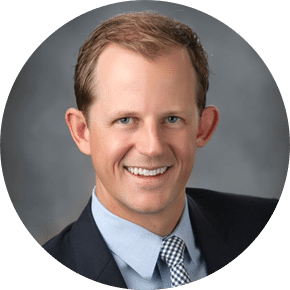A budgeting expert shares tips on how to stay financially focused in a crisis.
Looking to buy a home? Click here to search for a home in your area.
Looking to sell a home? Click here for a FREE home valuation.
Dale Goodrich owns and runs a budget coaching business here in Stafford, and he joins us today to offer some tips about the importance of budgeting and what you can do to keep a budget during the COVID-19 health crisis. Dale ran the Financial Peace University program at a local church for around 12 years, and as the founder of JDLS Budget Coaching, he really knows his stuff. The world right now is very different from what it was before COVID-19 broke out, so you’ll need to change your game a little to adapt to the new climate. To learn Dale’s essential crisis budgeting tips, watch our latest video conversation.
Here is a full transcript of the video:
Michael:
And we’re live. Dale, how are you?
Dale:
I’m doing well, Michael, how about yourself?
Michael:
I’m doing great. Thank you for being here today. Today we’re here to talk about budgeting in crisis. And the interesting thing is that we had this conversation about doing an interview and talking to all of our guys out there, just about the importance of budgeting, how you can prepare yourself, all those sorts of things when you’re looking at buying a house, it’s a big step. And with all of this craziness that’s going on in the world now, the conversation is just totally different, it’s still just as relevant, but we’ve kind of decided to shift it a little bit more toward budgeting in crisis and see if we can’t maybe give some people some ideas on what they can do during this time. Thanks again for being here. I’m just going to introduce you, tell people a little bit about you, if that’s okay?
Dale:
Mm-hmm (affirmative). Sure.
Michael:
Dale introduced Financial Peace University, I think a lot of you are probably familiar with Dave Ramsey and what he does in his show, his podcasts, radio show and all that. Financial Peace University is a course that that Dale taught at a local church, Mount Ararat Baptist for 11, 12 years I think Dale?
Dale:
Mm-hmm (affirmative). Yep.
Michael:
And then fairly early on, I think it was 2010 you started your budget coaching company, which is JDLS. I’ll let you tell people a little bit a little bit about that. You led that Financial Peace University Program for those 11 years or so. You’ve actually been to Dave Ramsey’s facility down in Tennessee to go through the courses and classes and all those sorts of certifications down there.
Dale:
Mm-hmm (affirmative).
Michael:
I say all that just to say that you’re someone that’s really deep into something that a lot of people don’t even understand there’s help out there for. There’s financial planners, but the idea there is you have to have money to give them so that they can do something with it for some time down the road.
Dale:
Right.
Michael:
Can you tell us a little bit about what you do and how you got into it and maybe how it’s different from financial planning?
Dale:
Sure, yeah. I’ve been passionate about the topic my whole life. I mean it’s just something that’s been very important to manage well. Pay attention to the details so to speak. And like you said, I brought Financial Peace University, FPU, to Mount Ararat many years ago and it’s a nine week course we ran twice a year. And actually, we still run it twice a year. I’ve handed the leadership of the course off to another gentleman and I help him provide advice and what have you along the way. But you’re right, financial planners are in the business of running out your estate with investments and insurance and what have you that are all provided by licensed members of the financial services industry.
Dale:
But budgeting is where the rubber meets the road. If you don’t have money to invest then you don’t
need the services of an investment planner. What you need is someone that can help you get your day
to day budget organized. And that’s what I’ve really enjoyed doing.
Michael:
Right.
Dale:
I’ve always gotten a lot of enjoyment out of helping people understand that kind of thing. And budgeting is kind of a taboo word to be honest with you, because it conjures up a kind of an uncomfortable feeling for a lot of people.
Michael:
Sure, right. Doesn’t sound like very much fun I guess.
Dale:
No it doesn’t. It doesn’t sound like a lot of fun, but sometimes it’s a little easier to swallow the pill if you call it a spending plan. If you figure out how much money is coming in, how much can I spend and maintain some acceptable level of lifestyle and comfort. And it’;s real important in this business to put it all into perspective and remember your why. Why do you want to get out of debt, for example? Well, people don’t want to get out of debt because they want to get out of debt that’s no fun. I don’t want to wake up in the morning and send all my money off to the credit card company. I want to get out of debt so that I don’t have to work overtime to keep the light bill paid and keep missing my daughter’s dance recital or my son’s little league games. I want to be free to have a life. And rather than being a restrictive thing (a budget kind of conjures up images of being slapped with wearing financial handcuffs) if you understand your cashflow situation, it’s one of the most liberating things in the world. You can bounce around inside those guard rails all day long and have a life. That’s the goal.
Michael:
And it’s funny you talk about finding someone’s why, because we try to go through the same thing on the real estate side. It’s always one level deeper. Is it just I want to buy a house because I need a house? Or is it because my parents are going to come to live with us because for whatever the family situation is? And if we know the why, then it’s a lot easier to help the person and try to make it something that means something rather than just a house.
Dale:
Right. Rather than filling the square.
Michael:
All right. Putting aside again what the original topic was about the importance of budgeting and how to get to a point where you’re really comfortable, whether you’re buying a house or or moving up or whatever the case is. Thinking about how important this is for a lot of families right now, knowing that income is either uncertain or it’s gone away and there’s some real hardships out there. How can people approach their budgeting or the management of their financial situation if they find themselves in a position where income is uncertain or maybe they’re having a hard time paying bills right now. How would you have someone look at a situation like that?
Dale:
Well, when you’re confronted with a disruption to your income it’s obviously a traumatic thing and it’s emotional and you need to kind of think about, okay, what now? How do I take one step forward? And what we often coach people to do is focus on what we call the four walls. During normal times, ideally we have that income and we use that to pay for all the things that we want need in our lives. But when you’re in the midst of an emergency like this, you have to focus on the four walls, which is food and clothing, shelter (which includes utilities) and transportation.
Dale:
If those four things are taken care of, that should be your top priority. Then you can live to fight another day. Everything else is going to have to wait, and not to say that it’s not going to be traumatic or have any sort of circumstances down the road that you have to deal with, but keep the light bill paid and the food in the pantry and you can live to fight another day.
Michael:
The idea is that a lot of the things that we’ve come to believe or we’ve told ourselves are essential, we need to really take a close look at and whatever we do have, put into making sure that us and our kids have a place to stay and food to eat-
Dale:
Absolutely.
Dale:
Just take care of the basics and everything else becomes a luxury. Even Visa and MasterCard – okay guys, well I want to pay you, but if I pay you the lights are going to go out and that’s not going to happen to my family, so you’re just going to have to get in line.
Michael:
Okay. What are some strategies that people should consider when they’re in a situation where something unexpected has come up. How would you coach someone through that?
Dale:
Sure. Well first of all, if you’re a married couple, obviously lots of real good, high quality communication. Make sure you understand what you’re trying to accomplish. You’re keeping the lines of communication open and really take a hard look at the money that you do have coming in, or that you have saved up for emergencies, and where you’re going to deploy those dollars. If for example, you happen to be in the process of paying down debt, it’s perfectly okay to push pause. You might’ve been doing what we call the debt snowball, where you arrange your debts from lowest to highest and begin paying them off in order. Well, it’s okay to push pause on that and just do minimum payments on all your debts if you can even do that just to…you’re looking at treading water right now and so you need to take a close look at all of your spending, cut out all of the unnecessary spending that might be in your life and also if you have any sort of a windfall, a tax refund comes to mind right now we’re in that time of year. If you happen to be getting a large refund, you might be tempted to throw that against your debt, but right now you want to sit on that cash.
Dale:
Just sit there because what you’re trying to do is just live to fight another day.
Michael:
And when… As I understand it anyway, when you’re looking at coaching toward that debt snowball, the idea I think is to tackle those debts and take them away so that if a situation that’s unexpected like this comes up, you don’t have as much liability, you don’t have as many things out there that you’re having to figure out what to do with.
Dale:
Exactly. Yep. Obviously minimizing the amount of money that has to go out every month and just trying to get into a healthier place during normal times, that’s a smart thing to do. But yeah, you just need to take a look at the money coming in, the money going out and create a very carefully thought out priority list.
Michael:
It’s funny you just said priorities and that can be really difficult to set what are those priorities? It’s not easy, I’m sure as you go through that, but I guess it is numbers. So, it is something that can be put on paper.
Dale:
Well, as a matter of fact, and it seems a little bit counterintuitive to say this, but in a way the coronavirus is probably making some of those conversations easier. Because, “okay honey, I just found out I’m going to be taken at a 25% pay cut. My company is going to try to spread the existing payroll budget as thin as they can and I’m taking a pay cut.” Okay, well that’s an easy conversation. We just don’t have the money to do this, that or the other thing.
Dale:
Whereas during normal times, if you have the money and you just need to exercise the behavior change, the discipline to put it towards debt instead of going out to buy that shiny new thing you want, that’s a harder conversation to have. In a way being in the throws of an emergency like this almost makes the conversation easier.
Michael:
It definitely makes it more immediate. Okay. Once we get past setting those really high priorities and then pushing pause on all the things that are unnecessary, including paying down debt and those sorts of things. What other steps would you have to help people address their expenses and move through that process?
Dale:
Well that’s a question that’s been in the news a lot lately with various creditors including mortgage companies and landlords and student loan creditors and what have you, making all kinds of accommodations for the people that owe money. And you don’t know if you don’t ask. Don’t be shy about picking up the phone and finding out as much information as you can about what any of your lenders are offering in terms of an accommodation. Now, the real important thing to do is make sure you fully understand what it is you’re being told. Ask a lot of questions and do a lot of research and document everything. If a mortgage company for example, is saying, “Yeah, this is fine, suspend your mortgage payment for three months, we’re fine with that.” Really? Give me a little more information here. What’s going to happen at the end of three months? And Oh, by the way, if you don’t mind putting that in writing that’s going to be awfully important so that I can have my people review what it is you’re offering so I understand what it is I’m getting into.
Michael:
Yeah, you’re right, you hear that everywhere now that these mortgage companies are offering forbearance or you will hear the idea of deferral, mortgage payments being deferred. But it can be a cautionary tale because a lot of what we’re hearing is that they’ll allow you some grace for a three month period, but at the end of three months, the entire amount is due.
Dale:
Right.
Michael:
It may or may not be the best thing for your financial position if you’re really struggling, trying to keep a roof over your head and keep people fed, that’s one of those tough decisions. But it’s something that I think we need to understand that the mortgage companies aren’t inherently benevolent, not that they’re trying to do something negative, but there’s a price at some point. Sometimes it’s additional interest that accrues so it may or may not be the right decision for individual families, but it’s just a matter of really understanding what it is that you’re agreeing to and what comes down the road.
Dale:
Sure. And I’d want to make sure that what’s being promised to me is something that they’re actually authorized to promise, Hey, it won’t impact your credit. We won’t even report it. Really? Okay. Well look, I’d like to hear that from a couple of different sources and investigate what it is you’re telling me and make sure that’s really true. Because if you get to the other side of this thing and you find out that all of a sudden there’s all kinds of information on your credit report that the guy on the other end of the phone said wouldn’t be reported, now you have a bigger…and another problem to address.
Michael:
Yeah. I guess the critical thing there is, and you’ve said this to me before, is to get it in writing.
Dale:
Absolutely.
Michael:
Get everything in writing.
Dale:
Get every agreement that you are making over the phone okayed. As soon as you send that out in writing and we’ll have that documented and agreed to and reduced payments or something like that you’re going to get a certified check and return receipt requested in the mail. And keep that documentation for the rest of your life.
Michael:
And it’s interesting when it comes to how something’s going to report on a credit report. I’ve had a couple clients ask me, “Hey, should I look at doing this mortgage deferral? I’m selling my house anyway.” And the question is maybe, it depends on what’s right for your family like we talked about. But if you’re going to buy another house, you need to know how it’s going to report on your credit report. Because if it does show that it’s anything other than an on-time payment, you need to know how your lender on the other side is going to look at that and whether or not that’s going to stop you or slow you down or whatever the case is when it comes time to buy that next house.
Dale:
Yep. Sometimes slowing down will get you there faster, so be patient, respect the process, and lots of research.
Michael:
All right. What about the next steps for someone? We’ve kind of talked about that core, but once we come out of all of this, how to families recover, what sort of next steps do they take? What is the financial picture or the budgeting world look like for that family?
Dale:
Well, this experience has been a pretty vivid teacher for a lot of people and the wise and prudent person is going to document what has taken place. I mean, we were just in the throws of an emergency and we’ve always given lip service to an emergency fund, but we just actually lived through one. What did that look like for us? Where did we have to cut spending? Were we able to do successfully? What do we really need in terms of cash on hand in case this happens again or something not even virus related that causes a disruption in our economy. Anything is possible. Really take a long, hard look at what this spending experience was like and what you need to do to prepare for the next one.
Michael:
Yeah, I guess it’s sort of in our nature if we make it through a crisis to just sort of like, “whew, good. All right, that’s gone.”
Dale:
Yeah, that could never happen again.
Michael:
And, I mean, I look back 60 days and I never would have thought that this whole scenario could happen.
Dale:
Oh yeah. Who could imagine?
Michael:
And I’ll credit my wife because she was a lot more right about it than I was. I thought, no, everything will be fine. It’s just, it’s what’s in the news right now.
Dale:
Sure.
Michael:
Of course, I was wrong and here we are.
Dale:
Yeah. Well it’s amazing. In fact, my wife and I were talking about this just today and we were reflecting back on how quickly this whole thing went from kind of a minor news item and I remember hearing the term social distancing, and all of a sudden businesses are being shut down. I mean, the curve was steep and it was scary for a lot of people.
Michael:
And it was quick.
Michael:
You mentioned a couple of times as we’ve talked through here, the idea of having an emergency fund. Tell me, what does that look like? How does one get there? What are they trying to do? What’s the whole idea?
Dale:
Sure. Well, the emergency fund is as the name implies, it’s supposed to be there for emergencies. And one of the biggest things that I run into when I coach couples is that there’s some pushback on the notion of parking a large number of dollars in a savings account. Because it’s not sexy, it doesn’t earn a lot of interest and I want to go off and become Warren Buffet with my money. Why are you telling me I got to park X thousands of dollars in the bank account?
Dale:
Well, an emergency fund is not an investment. It was never intended to be an investment. It’s an insurance policy against something like coronavirus. The ideal thing to do with that is to, well first of all, figure out a baby emergency fund. We’ve talked about the debt snowball. If you have a lot of debt to pay off, should you be saving money or should be paying off debt? While the Ramsey methodology that we talked about and financial peace university recommends a baby emergency fund of a $1000 dollars.
Dale:
And I don’t necessarily hold to that $1,000 for every single family out there. The right number is whatever allows you to put your head on the pillow and fall asleep at night. If you decide you need $2,000 in the bank before you start paying off debt or 3000 fine, decide on that as a family and do that. But the ideal thing to do is park it a separate account that is not commingled with your normal operating bank account (your checking account, your savings account). A money market account with check writing privileges. Something that’s physically separate from where you normally do your other banking is a good place to park it. And again, this experience that we’ve been having has allowed a lot of people to understand how much or how little they can actually live on for a given month.
Dale:
And you need to decide how big of an emergency fund do you want? Three months, six months, maybe a year. I mean, you know perfectly well Michael in the real estate business, that can be a cyclical business.
Dale:
So you better be ready for the months when you have no closings and you’re going to fund those months with the month two or three months ago when you had four closings. You need to understand what it is your family needs and park that amount of money in the account. And the other important thing to do is if you’re married or with a significant other, have a conversation and make sure you agree on the definition of an emergency. When do we need to use this?
Michael:
Never really thought about that.
Dale:
Yeah, I mean is the emergency a mani-pedi? Is it more fishing tackle? Ramsey jokes, he says, “I need a faster bass boat. The bass are out running me, it’s an emergency” Well, I’m not going to tell you what your definition of an emergency is, but husband and wife need to have that conversation and agree on what that thing is and when it happens or use it, use the money for what it’s for and then get right back to replenishing it as soon as you can.
Michael:
Yeah. That’s got to be the tricky part too is making sure that once you’ve built that fund, if you do have to go into it, being disciplined enough to make sure that it gets refunded.
Dale:
Oh yeah. Absolutely. And it’s funny you mentioned about doing the hard work to get that money saved up. Yeah, it’s hard work. And when you get that money saved up, you hate to use it for anything because it was hard to save it up. Right?
Michael:
Yeah.
Dale:
But the point is if life happens and you go out and the car won’t start and a $1000 later, the car now starts, that hurts. But you took care of the problem with your emergency fund.
Michael:
Right, and then you can get to work.
Dale:
Yeah. What was that one step backwards? Yes it was, but it allowed you to take two steps forward, which is still one step forward when all said and done.
Michael:
Yeah.
Dale:
Yeah, use it for what it’s there for and put it back as soon as you can.
Michael:
And then just real quick, can you go through the idea of… I think some of us think this guy’s talking about three or six months of expenses in an emergency fund. I don’t know that I could ever save that much, but there’s a distinction between everyday expenses and then your essential living expenses.
Dale:
Right.
Michael:
And so can you just talk quickly about kind of how that plays in?
Dale:
Well, sure. I mean, when you talk in terms of an emergency, a disruption of your income, there are an awful lot of things that you do without even thinking about that you’re probably going to cut out of your spending plan when you have to tighten your belt. A lot of things suddenly do become luxuries where under normal times they wouldn’t be seen that way. We’ve got to go out to dinner every Friday night because that’s how we medicate long hard workweeks.
Michael:
Yeah.
Dale:
Well, in a true emergency, no you don’t. You just have to learn how to tell yourself no. And that’s like I said, budgeting, creating a spending plan. The numbers are easy. If you graduated from second grade, you know all the math you need to know in order to be successful at budgeting. The hard part is behavior change. And recognizing that, Hey, I might need to deny myself. That’s not a pleasant thing to do. But yeah. And the other problem and we fell into this trap ourselves. Our kids are grown now, but back when they were youngsters we said, “Well we have to go to Disney World now because they will never be this age again. And this is a one time opportunity.”
Dale:
Okay. It’s one thing to tell yourself no, it’s something else to tell your kids no, that’s a hard conversation to have.
Michael:
Sure.
Dale:
Nobody’s minimizing the fact that it’s a hard conversation to have, the behavior change is the hard part, the money, addition and subtraction, get a calculator. Put on your mask, go to Giant and get a calculator and you’ll be able to do all the math you need.
Michael:
Kind of coming toward a close here. What would you tell the person or the family that has always kind of had that weight and maybe struggled, they’ve always made their mortgage payment and that stuff has always been okay. But the idea of budgeting and having that security and financial management on a regular basis just seems daunting. “That’s not me. That’s not who I am. I’m not good at that.” What do you say to that person?
Dale:
Well, I think a lot more people probably said that two months ago than are saying that today just because we’ve had this vivid experience that has introduced the need to be awfully discerning about our cashflow picture. But the important point, like I said, we’ve been harping on this whole behavior change thing and nobody’s asking you to boil the ocean. This is a learning process. It’s a process, not an event. And in most cases, people who are dealing with financial problems in their lives, excessive debt or something like that, it typically doesn’t materialize overnight so don’t expect it to be solved overnight.
Dale:
Whenever in the coaching business, we are looking for progress. Not perfect. And it’s so easy to beat yourself up over the fact that I made this mistake in my past and now I’m paying for it. Okay, well think about the windshield in your car versus the rear view mirror. Which one’s bigger? The windshield obviously, and that’s the one that we need to be looking out the majority of the time because if we stare in the rear view mirror, bad things tend to happen. Yeah, learn from your past, but recognize the need to make some changes possibly going forward.
Michael:
That’s great. That’s good. Any final thoughts? Anything that I didn’t ask or we didn’t cover or anything that you can I think of?
Dale:
No, I think we hit the waterfront, if you need help, you need coaching, you need advice from somebody, seek it out.
Michael:
Yeah.
Dale:
Don’t be shy about asking for help because the stuff doesn’t come naturally. Our natural inclination is to want more. I want more, and we’ll worry about how to pay for it later. You almost have to operate against your created nature in order to be successful with this stuff, it is how we are wired. So don’t be afraid to ask for the help.
Michael:
Well, Hey, I really appreciate you spending a little bit of time with us today. I think there’s a lot of people that can benefit from the ideas here and the overall message and I think it was great, and like I said, the pivot considering the times, I appreciate you doing that too. And maybe at some point in the future we’ll do another one of these and we’ll refocus it.
Dale:
Yeah, absolutely.
Michael:
But I think this was great and I can’t thank you enough for taking some time out of your afternoon and doing this with me.
Dale:
Well, thank you, Michael. I enjoyed it.
Michael:
Okay. All right. I’ll see you soon, Dale.
Dale:
Take care. Bye.
Michael:
Bye.
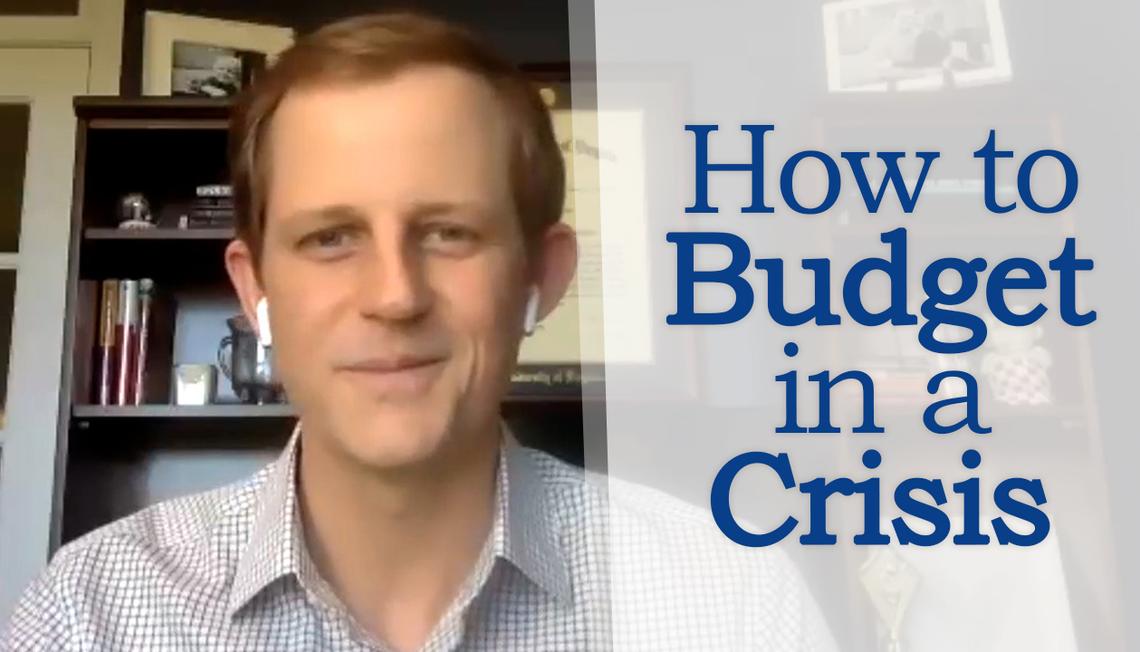
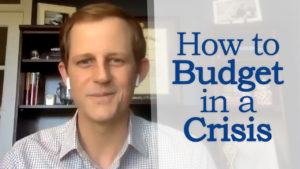

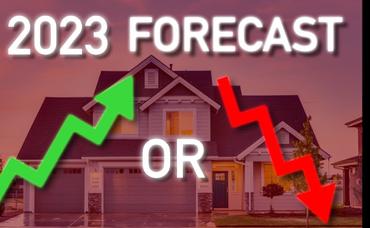
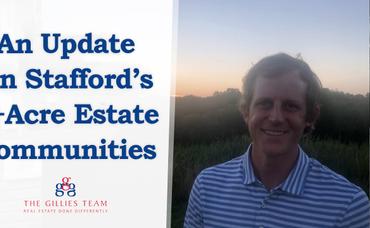
 Welcome! By submitting information, I am providing my express written consent to be contacted by representatives of this website through a live agent, artificial or prerecorded voice, and automated SMS text at my residential or cellular number, dialed manually or by autodialer, by email, and mail.
Welcome! By submitting information, I am providing my express written consent to be contacted by representatives of this website through a live agent, artificial or prerecorded voice, and automated SMS text at my residential or cellular number, dialed manually or by autodialer, by email, and mail.

